Rigoberto Urán's unlikely path to superstardom
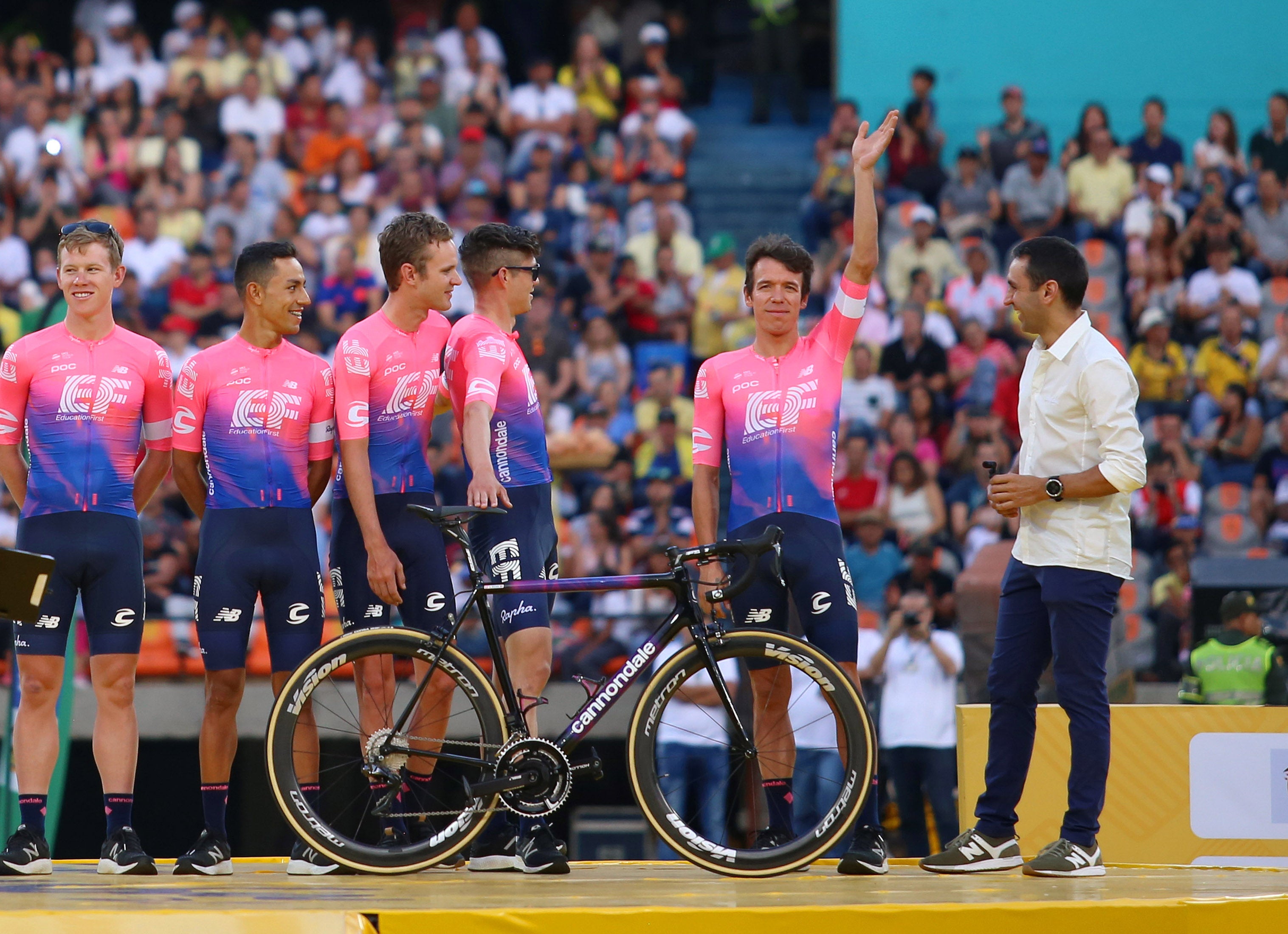
(Photo by Maximiliano Blanco/Getty Images)
Rigoberto Urán Urán stood atop the stage in Medellín, having won the stage 1 team time trial with EF Education First at the Tour of Colombia 2.1. Celebrating the first orange leaders jersey of the week, Urán knelt down in front of the adoring crowd, put his head back and soaked in the scene. The crowd’s cheers were deafening—Urán’s countrymen bellowed with love and admiration.
Outside of Colombia Urán is best known for his racing results: second place at the 2017 Tour de France; Olympic silver in 2012; various stage wins at major races. He’s another successful cycling star in a peloton rife with talent.
Yet within Colombia, Urán is a superstar with an entirely different level of fame. He is equal parts athlete, rock star, and national hero. He’s a all-star athlete and entertainer, who broadcasts a fun-loving and joyous persona to his millions of followers on social media.
Urán’s personal soigneur and motorcycle driver, Fader Ardila, sees the fame on display during every one of Urán’s training rides back home.
“Cars will pass and then turn around to honk at him to say they love him, or stop and ask for a photo,” Ardila said. “If he’s not in the middle of an interval, he will always stop and call them over. To manage that popularity is hard. It doesn’t matter if they’re rich or poor, he’ll always stop to give them his time. I think that’s something that’s special.”
Urán’s fame springs from a variety of sources. At age 32 he is the oldest of Colombia’s current generation of world-class riders, and his early success in Europe helped pave the way for Nairo Quintana, Esteban Chavez, and Miguel Angel Lopez.
Urán’s personal story also reflects the national narrative of modern Colombia. He grew up in Urrao, located just three hours west of Medellín. His boyhood corresponded with Colombia’s 20-year war between drug gangs, the Colombian government, and paramilitary forces. The unrest made Urrao, and greater Antioquia, one of the most dangerous places in the world.
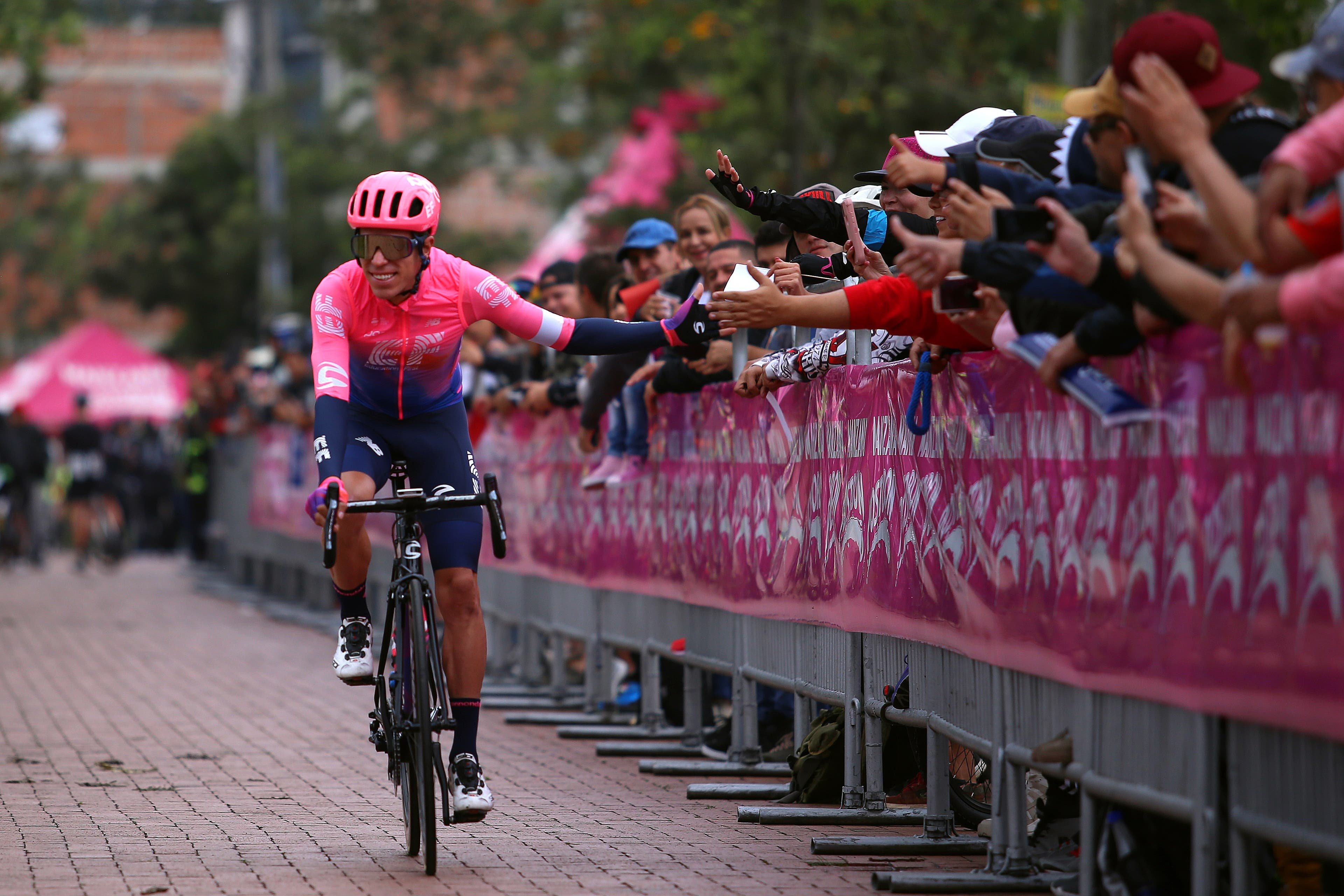
When Urán was just 14, his father was shot and killed while selling lottery tickets. Urán’s father had introduced him to cycling.
Urán became the head of the household, responsible for his mother, Aracelly and younger sister, Marta Lucia. He took over his father’s job selling tickets while also attending school and training on his bicycle.
“In Urrao you have a long tradition in cycling,” Urán said. “There are a lot of children now in the cycling school there. It’s beautiful there, and the sponsors that stand by their side.”
Urán showed early talent, and at age 16 he signed a professional contract with the Colombian development team Orgullo Paisa. The contract was something Urán had fought for, in order to secure the family’s financial future. Without the contract he would have had to quit racing in order to support his family. Due to his young age, Urán’s mother had to sign the contract for him.
Urán raced for two years with the development team and blossomed. He won Colombia’s junior national title on the road and track. In 2006 he made the jump to Europe to race with Tenax, a UCI pro continental team. In Europe, Urán found few Colombian racers.
“I had already won a lot of the races I could win in Colombia. I was young but the opportunity arrived so I went,” Urán said. “There were not that many Colombians racing in Europe other than Victor Hugo Peña, [Santiago] Botero, and a few others. It’s not like today where we are 20. The riders are trained well, the teams see them and so they adjust to things easier.”
Even though Colombia had a dearth of young talent racing in Europe at the time, there were those back home who had high hopes for Urán. Fader’s brother, Mauricio Ardila, was also racing professionally in Europe at the time, believed Urán had the talent to succeed. Mauricio is now the director of the Orgullo Paisa development team.
“I always believed Urán would become a great cyclist,” Mauricio Ardila said. “When you are involved in cycling, you know. He went to Italy very young, quickly showing he was very good.”
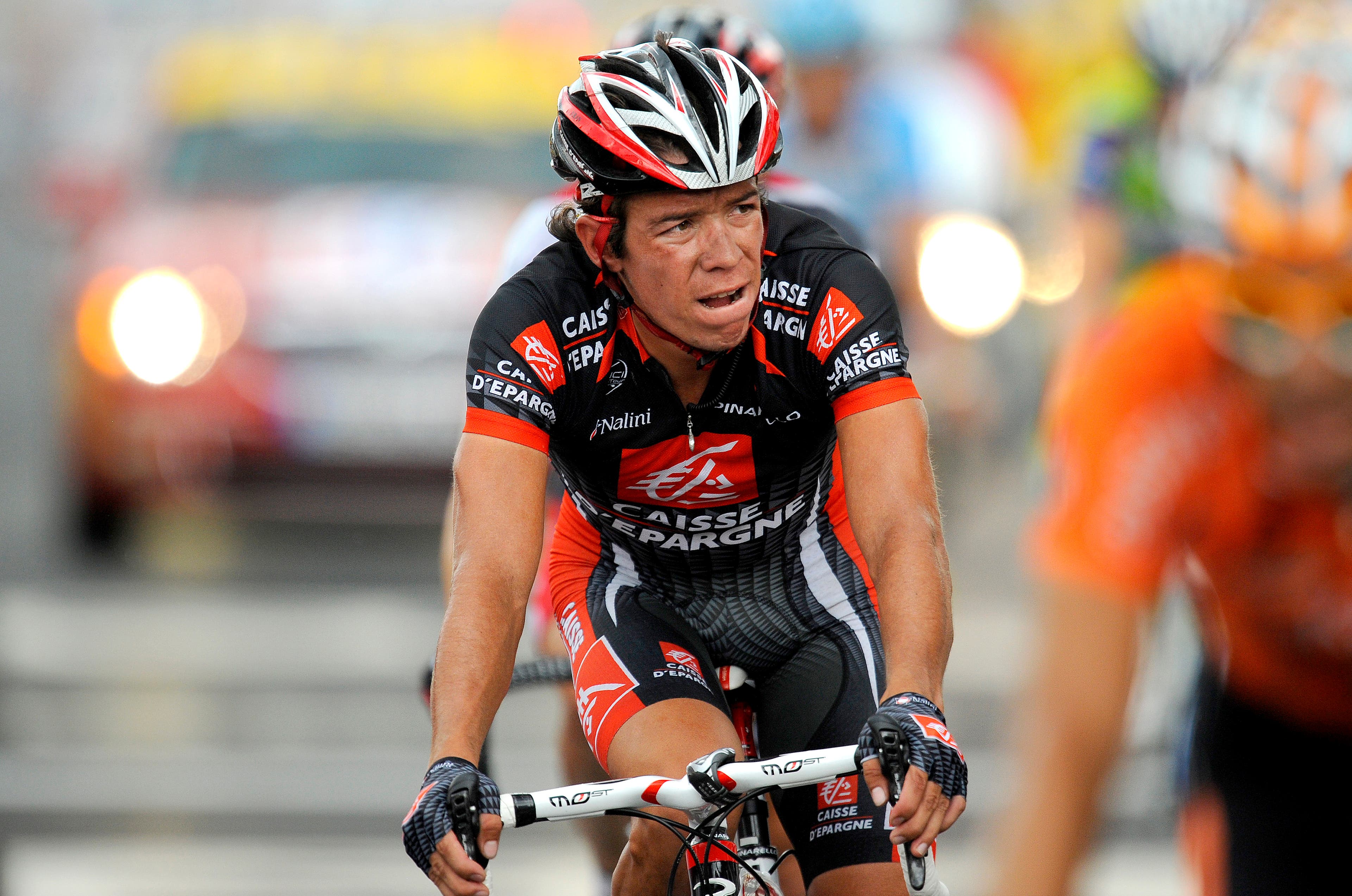
In 2007 Urán signed with the Unibet.com team and won the individual time trial at Spain’s Euzkal Bizikleta, beating multiple ProTour riders. The result caught the eye of Spain’s biggest team, and the following season he signed with Caisse d’Epargne, the squad of Alejandro Valverde and Oscar Pereiro. Urán was the team’s stage racing understudy, and landed impressive results at weeklong races in his first few years.
As Urán’s career took off, Colombian cycling began to produce more great talents in the development ranks. The sport also grew in popularity amongst regular Colombians as a form of recreation. Urán’s popularity grew, especially after his results in Grand Tours and the 2012 Olympics.
Urán used his fame and resources to give back to his hometown, donating to the cycling school to the Antioquia cycling community. He married an Antioquia local, Michelle Durango, who now helps him manage his business back home.
“Rigo has grown a lot in business, on the bike, in the form that he trains, and his professionalism. A lot of that has to do with Michelle,” Fader Ardila said. “Rigo is very much about family. If he’s home, he’s always with Michelle, or his sister, or her family, he’s always joking with his mother in law, it helps him stay grounded and relaxed.”
Like many riders, Urán’s career had good years and bad. After reaching the podium at the Giro d’Italia, Uran struggled with inconsistency in 2015 and 2016. Those years corresponded with the rise in popularity of Quintana, Chavez, and other Colombian riders, who eclipsed him within the peloton. Urán admits that the downturn in results caused stress.
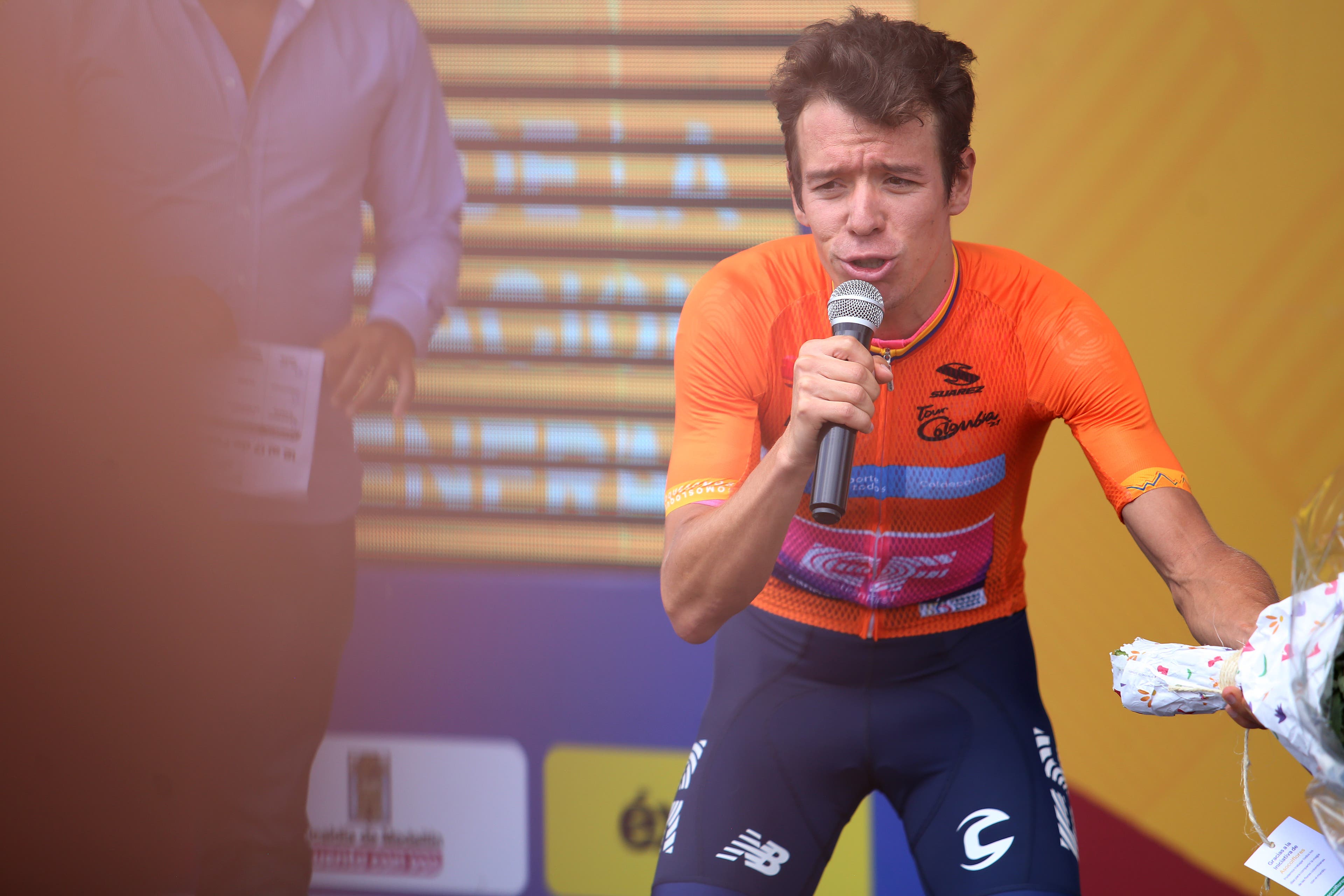
“I was not happy,” Urán said. “I had always wanted to be a cyclist. I would race but didn’t enjoy it so I saw that something was not working. I was looking for a result but thought to myself – I am young, I want to enjoy cycling as if the results didn’t matter.”
A renewed energy came in 2016 when he signed with Cannondale-Drapac. Urán’s second place at the 2017 Tour de France vaulted him back into the limelight as a mega celebrity in Colombia.
“I always want to be in good favor with everyone on the team – the massage therapists, the mechanics, everyone, but the results now to me don’t affect me as much,” Urán said.
Urán said he still focuses on the overall enjoyment of racing his bicycle, rather than on results and podiums. Urán’s antics in public and on social media seem to uphold his view. He references his likeness to Rolling Stones frontman Mick Jagger on his Instagram page alongside the caption, “I’m ready for today!” During the 2018 Tour of Guanxi Urán got on stage during a presentation and proceeded to entertain onlookers by singing and dancing.
During his off-season in Colombia Urán trains every day, often with Fader Ardila following him on a motorcycle. A typical training day begins at 8;30 a.m., when Fader arrives at Urán’s house to make sure the training bicycle is in working order. The two eat breakfast and share memories.
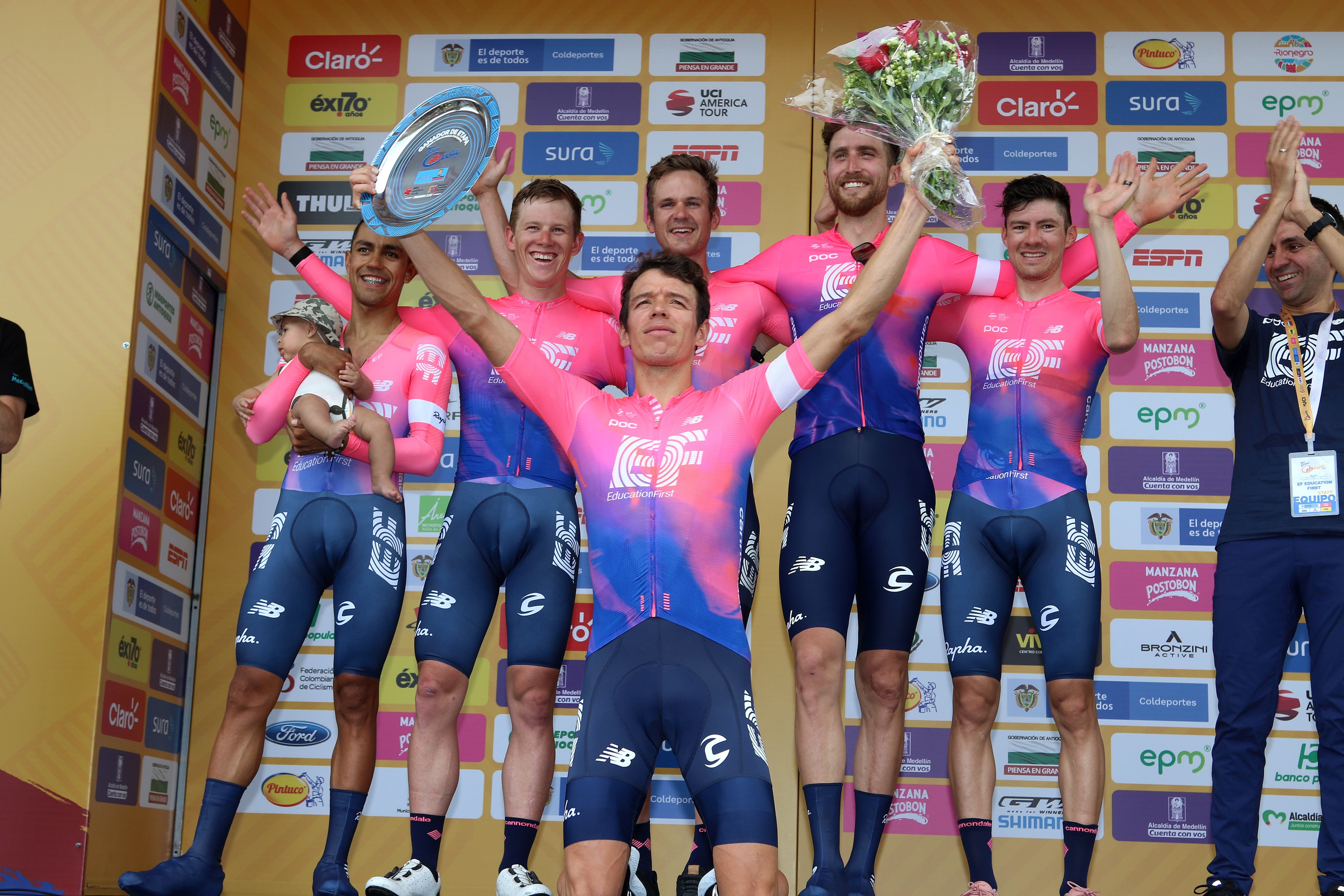
Throughout the 2019 Tour of Colombia, Urán seemed to thrive on the attention of his countrymen. He often rode near the front of the peloton as a super domestique for his teammate and compatriot Dani Martinez. He took the microphone on the stage to welcome them, and posted images to his Instagram of him entertaining the crowd.
And throughout the race Urán seemed to enjoy every moment of the fame. He wore the race leader’s jersey for two stages, which mean frequent trips onto the podium to address the roaring crowds across Antioquia. It came naturally to him, and he did not shy away from the autographs and photos. And Urán knew how special each moment was.
“My fans want Rigo and not Rigo the cyclist. When you achieve that, it is another level – that people love you as you are,” Urán said. “If I have a good or bad season, the love and enjoyment is the same, it never changes. To achieve that is very difficult, so that is why I live very happy and grateful.”